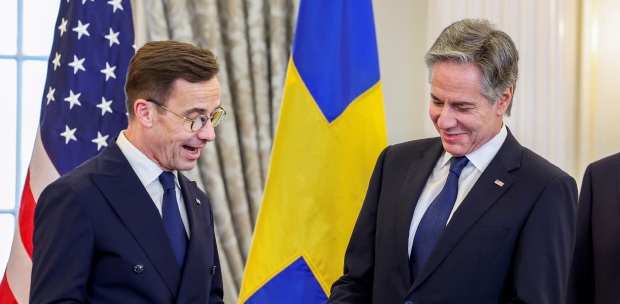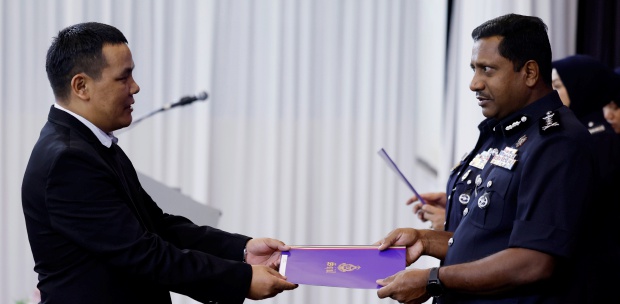"IT is our policy to have diplomatic relations with all countries on the basis of peaceful co-existence, respect for our sovereignty and territorial integrity and scrupulous non-interference in our internal affairs."
These are the words emphasised by our former third foreign minister, Tun Abdul Razak, when addressing Dewan Rakyat on Malaysia's foreign policy on July 21, 1971, particularly the normalisation of bilateral relations with China.
There was no doubt that the bitter experience in dealing with the Communist Party of Malaya's threat during the state of emergency had left the normalisation proposal being met with fear and scepticism.
Nevertheless, the visionary prime minister, having led the country during the tumultuous years on the back of the May 1969 tragedy, had a clear notion of how a neutralisation policy could safeguard the country's peace and stability.
As articulated by Tun Ghazali Shafie, a former foreign minister, the neutralisation strategy characterised by the element of equidistance is meant to be a policy of non-involvement, impartial or neutral relationships with great powers.
He further said a neutral and non-aligned policy would entrench a regional policy of neutrality that would facilitate
and perpetuate great power disengagement from Southeast Asia.
It must be noted that Malaysia had taken a different approach and a strict stance prior to formalising diplomatic ties with China, albeit China's position to have a formal diplomatic relationship in the first place.
Malaysia demanded three issues be settled before normalisation could occur: China's support for the Malayan Communist Party (MCP), the status of 220,000 stateless Chinese in Malaysia, and the question of "Suara Revolusi Malaya" radio broadcasts which emanated from China.
Although ties between two countries could be easily established through a normal diplomatic process, these issues proved to be a thorn in the flesh domestically. However, Malaysia managed to get China to agree to a certain extent for matters raised beforehand.
In the joint communiqué announcing the normalisation of relations, it was emphasised that the friendly relations between the two countries are based on the principles of mutual respect for sovereignty and territorial integrity, mutual non-aggression, non-interference in internal affairs, equality and mutual benefit, and peaceful co-existence.
The rapprochement, at that point of time, reinforced the sovereignty of Malaysia, a country with a mere population of 12 million, in negotiating terms with China.
Despite China's hesitancy in explicitly renouncing its support for MCP, the message from the joint communiqué on the non-interference policy meant that China seemed prepared to halt its aid to MCP.
The normalisation relationship signified Malaysia's success in its non-aligned policy and the equidistance policy with the great powers.
Amid the intensified tension of the United States-China rivalry in recent years, the principles of non-alignment remain an efficient tool in facing big powers. It is important for Malaysia to be seen as an independent and principled country in line with its foreign policy founded on the values of peace, humanity, justice and equality, just the way the normalisation relationship with China was spelt out.
Fast forward, in three years' time, Malaysia-China diplomatic ties would turn 50 since Tun Abdul Razak made an official visit to Peking in May 1974 to formalise the normalisation relationship between the two countries. Therefore, the principles of non-alignment need to be pragmatically affirmed based on an independent and principled country.
Notwithstanding China's economic prowess and technological advancement that proved beneficial to Malaysia, the intrinsic values of peace, humanity, justice and equality — as elucidated in Malaysia's foreign policy — shall be the driving force in its conduct.
Having reaffirmed this position, Malaysia would be able to commit to advance global peace, security and prosperity, regardless of its conservative non-interference policy. Issues such as the alleged oppression of the Uighurs in Xinjiang and China's increasing assertiveness in the South China Sea dispute could be voiced out principally and impartially.
The writer is Research Officer, Parliament of Malaysia





